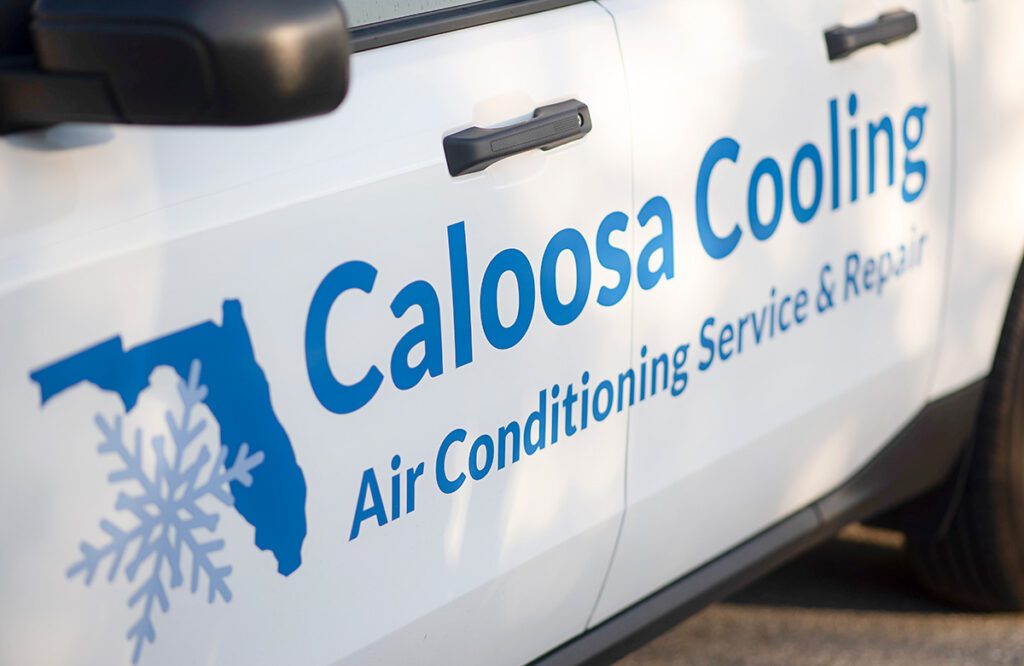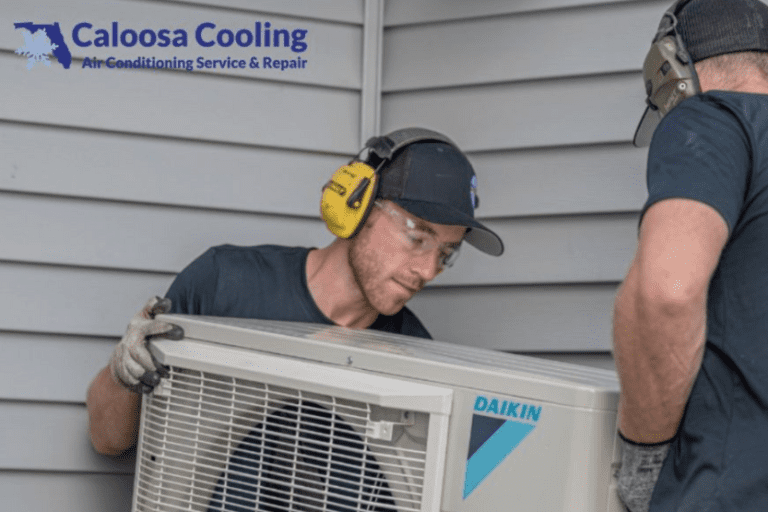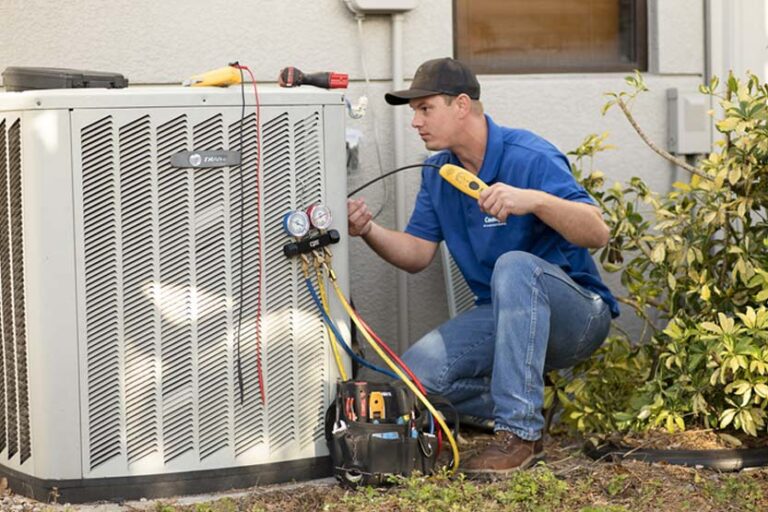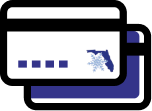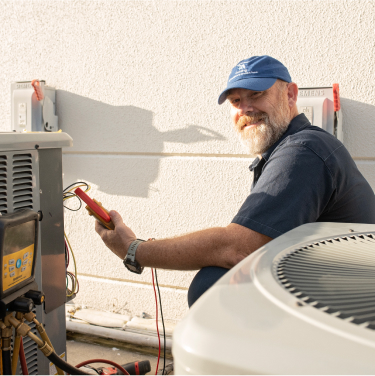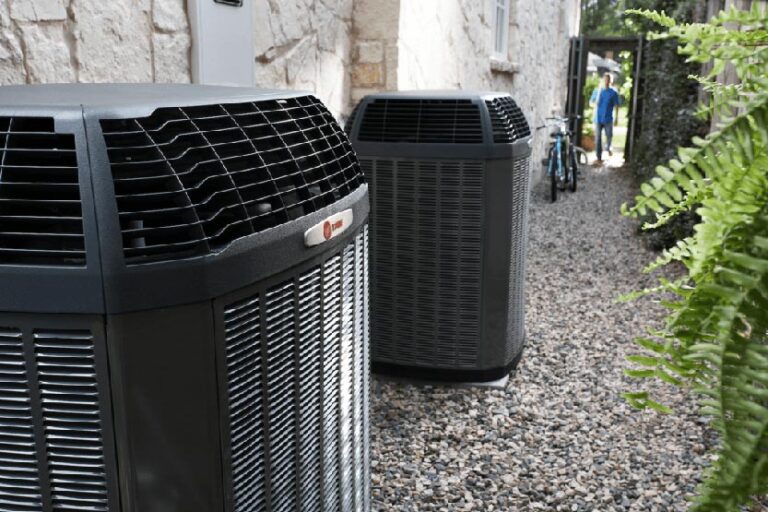
Find out the basics of heating and cooling your house, including the terminology, products, pricing, and basic maintenance routines.
Trouble understanding HVAC systems? Apparently, you are not alone. 20% of Americans said they had to repair or replace their HVAC system in the last year, but most said they were intimidated by the prospect, according a survey by Consumer Reports.
Not knowing where to start is normal. We can get you up to speed on the information you need to know before beginning a renovation or making a significant HVAC purchase, so you can make the best decision for you and your house.
HVAC Meaning: What is HVAC?
Heating, ventilation, and air-conditioning are commonly abbreviated as HVAC. Equipment like furnaces, air conditioners, heat pumps, ducting, thermostats, and other comfort controls make up your HVAC system, which is in charge of heating and cooling your house.
The HVAC industry may be complex, but it doesn’t have to be overwhelming for homeowners. The HVAC meaning and its technical components will become clearer as you get a better understanding of how the systems function.
What is an HVAC system?
In addition to filtering and purifying your air to protect you and your family from allergies, pollutants, and hazardous chemicals, there are a number of moving elements in your HVAC system. Breaking down the many components of an HVAC system, or the heating and cooling goods products in houses, will help you comprehend each system’s function in providing you with comfort all year.
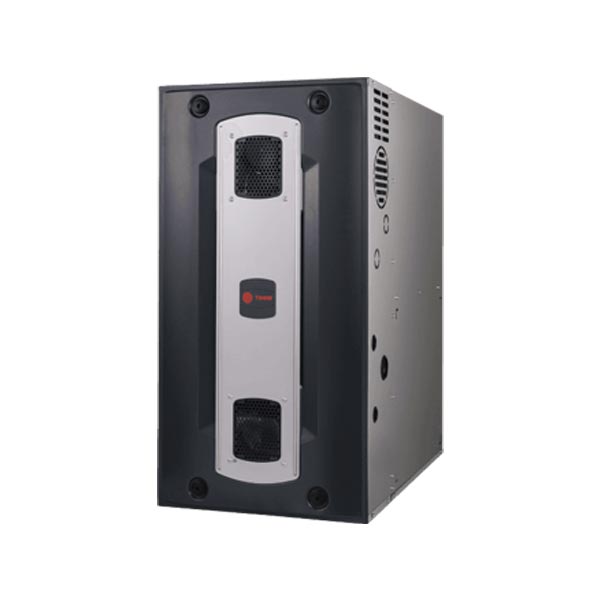
Furnace
Most people understand that a furnace heats a home, but don’t understand all the intricacies involved in the system. All furnaces consist of four main components:
- Burners that deliver and burn fuel
- Heat exchangers
- Blower
- Flue that acts as an exhaust for gaseous by-products
A furnace generates heat by burning fuel and distributes the generated heat throughout the house.
Air Conditioner
An air conditioner distributes heat energy from the inside of the home to the outside air. A split system, consisting of an inside evaporative heat exchanger and an outside condensing unit heat exchanger, is the most popular configuration for residential homes.
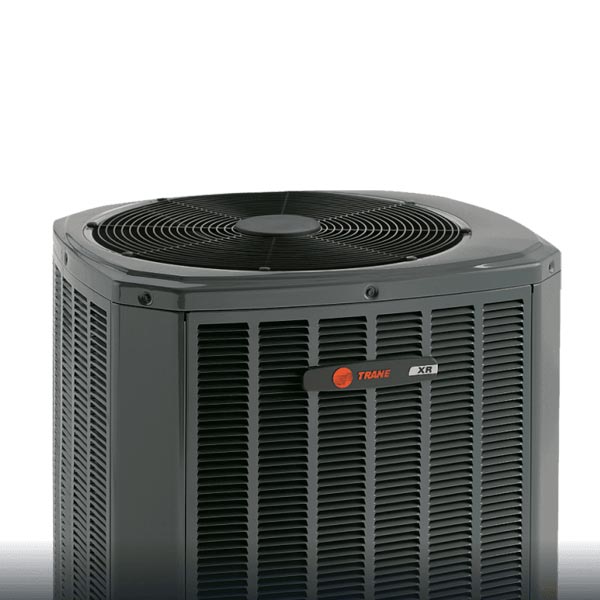
Heat Pump
If you reside in a region with moderate temperature, a heat pump is an energy-efficient choice to consider. It utilizes outside air to heat and cool a home in the winter and summer, respectively. Heat pumps are frequently misunderstood by homeowners, especially as a cooling system given their name contains the word “heat.” In the most basic sense, a heat pump “pumps heat” from one place to another, moving heat out of your home when you want it to be cooler and pumping heat into your home when you want it to be warmer.
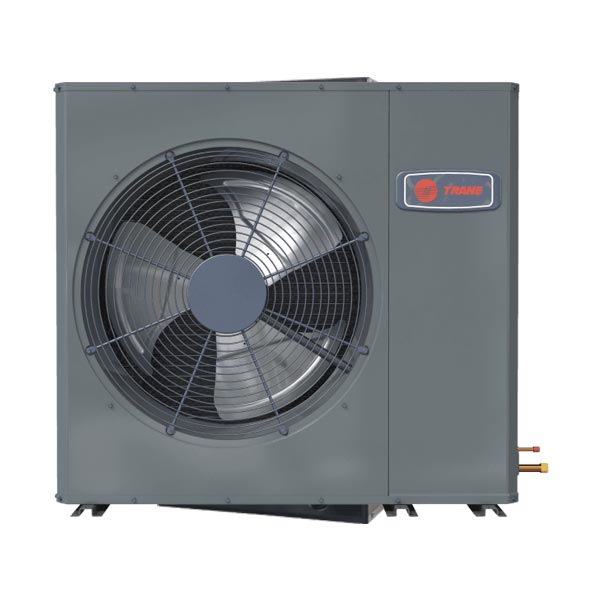
Air Handler
An air handler most commonly works with a heat pump to circulate air throughout your home. If you’re looking for a conventional air conditioner or furnace, you won’t need an air handler, since these systems have the internal components necessary for air circulation.
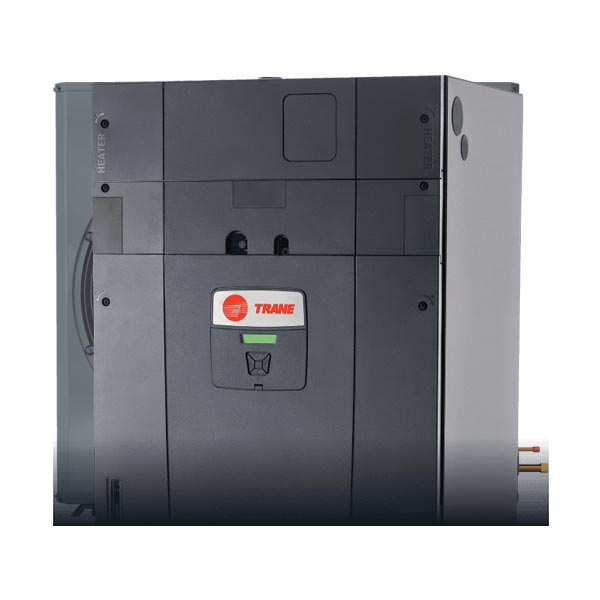
Ductless Systems
A ductless HVAC system or mini split is a heating and cooling system designed to deliver warm or cool air to a single room or several without the need for connective ductwork. Mini split systems are a great option for room additions, sunrooms, garages or areas of the home that need to be warmer or cooler. Ductless systems are a great option to heat or cool a single room in your home without the hassle of adding ductwork.
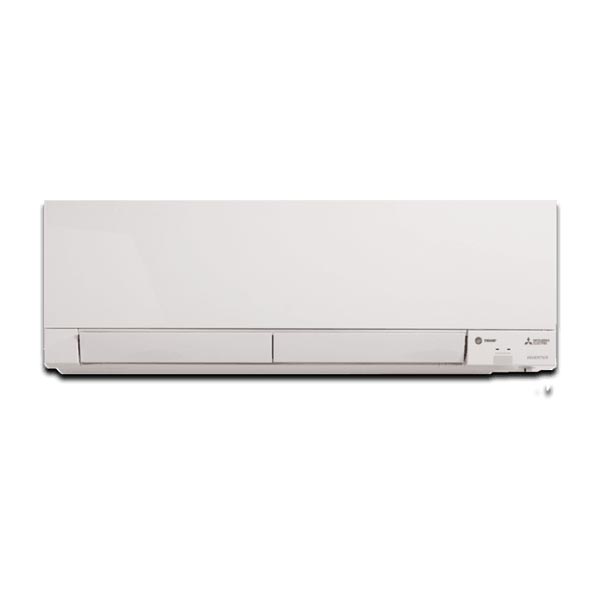
Thermostat
A thermostat is a regulating device that enables you to manage the temperature within your residence. In general, thermostats are classified as either conventional or linked controls. Essentially linked or smart thermostat controls may combine with other smart home devices and learn how to heat and cool your house most effectively over time. Traditional thermostats are simpler, although many also incorporate programmable functions.
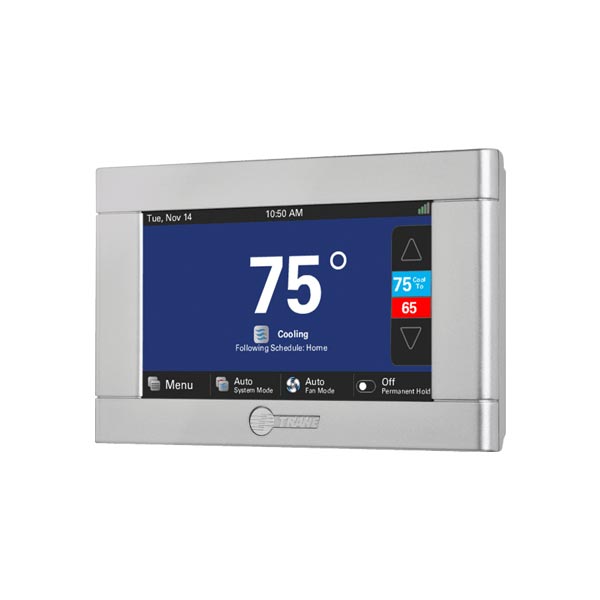
What Factors Affect the Cost of a New HVAC System?
Home Size and Construction
To properly maintain a comfortable temperature, a bigger house may need a larger unit or possibly many systems, which will, of course, cost more than a smaller home. In addition, the quality of your home’s insulation and window and door seals will impact your monthly heating and cooling bills.
Ductwork
The function of ductwork in affecting the comfort of your house from room to room is vital. When built and constructed appropriately, duct systems may optimize comfort and reduce energy use. If you are building a new HVAC system in a newly built house or upgrading ductwork in an existing home, adding ducting will increase the overall cost of your HVAC system by up to $2,000 to $3,000.
Project Difficulty
If your new HVAC system will be installed in a difficult-to-reach area or if you live in an older home that requires retrofitting, the cost of installation will increase. These kind of charges can only be identified via an onsite examination.
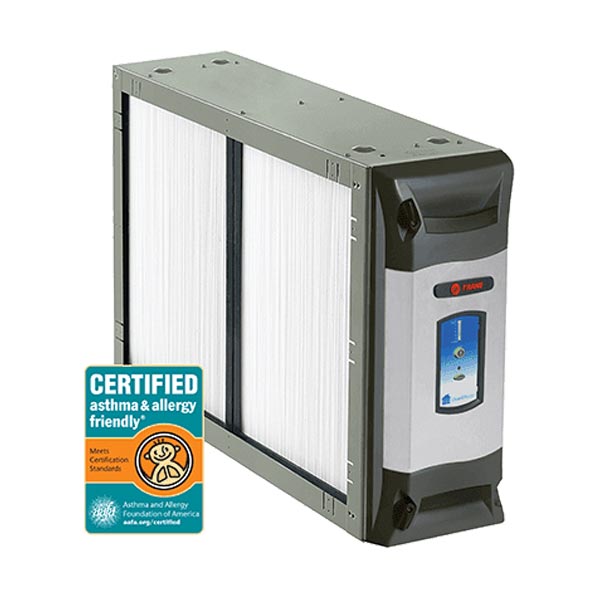
Indoor Air Quality and Connected Smart Thermostats
Along with your traditional heating and cooling system, you have options to enhance the overall indoor air quality of your home with a Trane CleanEffects™ air cleaner or add climate zones with a ComfortLink™ II Zoning System or take advantage of the latest smart home, connected thermostat controls.
There are many ways to save on a new Trane HVAC system. Talk to Caloosa Cooling at 239-226-0202 or message us about how to save on local rebates, tax credits, and special, limited-time offers. Here are some of the main factors that affect the cost of a new heating and cooling system.
Heating and Cooling Terms to Learn
Given how technical HVAC is, it may be challenging to understand all the acronyms, terminologies, and abbreviations. In order to assist you better grasp heating and cooling technology and help you pick the HVAC system that is best for you, here are a few key phrases.
- AFUE – Measures a furnace’s efficiency in converting heat to energy. A higher percentage means higher efficiency and lower energy costs.
- SEER – Measures air conditioner or heat pump cooling efficiency. A higher number means greater efficiency and lower energy costs.
- HSPF – A ratio for the heating efficiency of heat pumps. An HSPF of 8 or more is considered high efficiency.
- Split System – A split system has two parts: an outdoor unit and an indoor unit. Split systems are the most common HVAC systems in modern homes.
- Packaged System – Packaged systems are all-in-one solutions, with most of the components for heating and/or cooling housed in a single cabinet.
- Heating Stages – Refers to the number of settings a furnace or heat pump has. Variable or multi-stage systems offer more precise temperature control and run more efficiently than single-stage systems.
- Cooling Stages – Refers to the number of settings an air conditioner or heat pump has. Variable or multi-stage systems offer more precise temperature control and run more efficiently than single-stage air conditioners.
- ENERGY STAR® – The ENERGY STAR designation is designed to help consumers identify energy-efficient products.
- Hybrid System – A hybrid dual fuel system is an electric heat pump combined with a gas furnace.
Seasonal HVAC Maintenance Schedule: What to Expect
Whether your HVAC system is new and still under warranty or over 10 years old; routine maintenance service can get you ready for the upcoming season, lower your energy bills, extend the life of your system, and catch problems before they become costly repairs.
Scheduled HVAC maintenance with Caloosa Cooling’s Comprehensive Maintenance Service is one of the best in the business. Every Maintenance Service Includes a 31-point inspection:
- Check the Filter & Recommend Solutions as Needed
- Replace Batteries Where Applicable
- Verify Voltage at Air Handler
- Verify Amperage Draw at Heater
- Check Voltage at the Blower Motor
- Check Amperage at the Blower Motor
- Verify that an appropriately sized Breaker is Matched to the Heater
- Measure Return Air Temperature
- Measure Supply Air Temperature
- Clear the Drain Line
- Surface Clean the Evaporator Coil
- Examine and Tighten Low Voltage Electrical Connections
- Examine and Tighten High Voltage Electrical Connections
- Measure static pressure on the air handler
- Inspect Blower Wheel
- Spray drain treatment
- Check Disconnect at Air Handler
- Examine & Tighten Electrical Connections at the Disconnect
- Calibration
- Record Maintenance Details on PM Sticker
- Collect Air Handler Data
- Label Unit if it is Currently Unlabeled
- Surface Clean the Condensing Unit Coil
- Take Refrigerant Pressure Reading
- Take Subcool Reading
- Take Superheat Reading
- Take Voltage Reading at the Compressor
- Label Emergency Contact Information
- Take Amperage Reading at the Compressor
- Check Breaker Panel Labeling
- Check Breaker Panel Amperage Sizing
How Do You Know if You Should Repair or Replace Your HVAC System?
It could be time to consider whether to repair or replace your HVAC system if the heating and cooling systems in your house are no longer keeping you comfortable. There are certain indicators that it could be time to replace your HVAC, especially if the cost of repairs is becoming unaffordable or your HVAC system is no longer covered by warranty.
Replace your system when:
- It needs frequent repairs.
- It’s suffering from poor performance.
- Your energy costs rise.
- It’s over 10 years old.
- Is rated 10 SEER or less.
Replace your furnace if:
- It’s over 10 years old.
- Is rated 80% AFUE or less.
Replace your heat pump if:
- It’s over 10 years old.
- Is rated 10 SEER or less | 8 HSPF or less.
Financial Tip: Follow the $5,000 Rule
Take the age of the equipment and multiply that by the estimated repair cost. If the number is more than $5,000, then you should consider replacing your unit.
One Last Tip: Talk to a Dealer
Now that you know the basics, Talk to Caloosa Cooling at 239-226-0202 or message us for a detailed evaluation and recommendation for what heating and cooling solution is right for you.
What Are the Advantages of Talking With an HVAC Dealer?
A dealer is your best and only resource to truly evaluate your home’s HVAC needs. Plus they can work with you to recommend a custom solution that fits your home and budget. They can help you with the following:
- Custom Home Evaluations
- Emergency repairs and seasonal maintenance
- Indoor air quality evaluation
- Local rebates and special offers
Did You Know?
- Over half of the energy usage in your home goes towards heating and cooling.*
- You can save an average of up to $576 on energy costs each year by upgrading to a more energy efficient HVAC system.**
- If you upgrade to a qualified, energy efficient HVAC system, you may be eligible for tax credits and rebates.
- Your local dealer can offer special offers and local rebates.
References: ConsumerReports.org. HVAC Buying Guide, March, 2022. *Department of Energy, 2010.
** Based on Energy Star’s Savings Calculator for a 3-ton 21 SEER/10 HSPF heat pump and programmable thermostat versus the industry standard 13 SEER/7.7 HSPF 3-ton heat pump and standard thermostat in St. Louis, MO.



